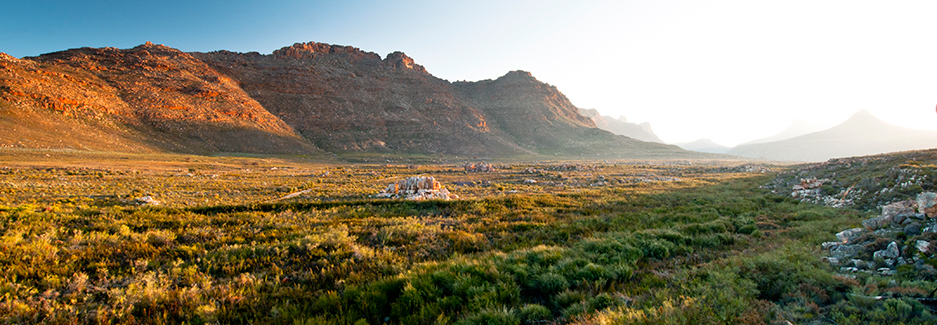The Age of Freedom
“The real problem of humanity is the following: we have Paleolithic emotions, medieval institutions, and god-like technology.” – Biologist E.O. Wilson
“Yesterday I was clever, so I wanted to change the world. Today I am wise, so I am changing myself.” – Rumi
Our cleverness has far outstripped our wisdom. We now have the ability to render entire species extinct and genetically engineer new ones. We can destroy whole ecosystems and kill millions at the push of the button. As evolutionary philosopher Daniel Schmactenberger points out, “When you have the power of Gods you need the wisdom and love of Gods in order to steward that power.”
And yet wisdom is not the silver bullet it is made out to be. Wisdom might help us live more harmoniously with one another, but it cannot crack clean hydrogen fuel.
At present humanity is passing through an evolutionary bottleneck, and on the other side lies two divergent attractor points: a planetary civilisation with a new collective intelligence and shared identity, or a new dark ages and a 6th mass extinction.
I believe humanity is going to need cleverness and wisdom if we are to make the transition and usher in The Century of Awakening.
A new book published by thinktank RethinkX argues that in the coming decade, five key sector disruptions will converge to unleash “the fastest, deepest, most consequential transformation of human civilization in history.” The five sectors are: information, food, energy, transportation and materials. The authors predict that the costs of these five sectors will fall 10x, using 90% less natural resources with between 10x-100x less waste.1
We will shift from a model of extraction to a model of creation. In the food sector for example, rather than killing animals and plants and breaking them down into food, precision fermentation technologies will allow us build our foods from molecules and cells up. Environmental journalist George Monbiot visited one of these labs in Helsinki and ate a pancake grown from bacteria taken from the soil. “It tasted,” he writes, “just like a pancake.”2
With small tweaks these bacteria can be made to produce the protein needed for lab-grown meat, milk, and eggs, that are not only tastier but healthier. Think of the vast tracts of land that could be freed up for rewilding, the countless billions of tortured farm animals who will be spared, the rainforests that could remain rainforests because we no longer need to extract palm oil.
In the energy sector the cost of batteries and solar panels will plummet and the rare earth minerals needed to produce them will eventually be built from the molecular structure upwards, rather than mined. Cheap green electricity will be produced, stored, and provided locally.
In the transportation sector, electric driverless Uber-style taxis will cut costs by a factor of ten. At that price few people will need or want to own a car. Can you smell the clean air? Can you see the endless miles of car parking spaces turned into green parks?
We will be able to meet the needs of the entire population of planet earth, at a fraction of the environmental cost. We are talking about true abundance.
Of course, just because these heights are within sight, it does not mean that we will scale them. For every good technology there are just as many terrifying ones: from cyber-attacks powered by machine learning, to biometric data harvesting and invasive surveillance technologies, to gene-editing, any of which in the wrong hands, foreshadow equal and opposite dystopian nightmares.
And it’s not only those with bad intentions who form the most likely hurdles. It is not out of spite that natural farming advocates delayed the roll out of Golden Rice in Bangladesh and Indonesia over the past twenty years, potentially costing millions of lives and leaving millions of children blind.3 Nor will it be out of malice when livestock farmers and environmental campaigners team up to delay the development of lab-grown meat, thereby condemning billions more animals to unnecessary suffering and slaughter.
Technology alone will not lead to the transformation of our civilisation, because these technologies render the very basis of our scarcity-based economic, political and social operating systems obsolete.
Transitions of this magnitude call us to rethink the very ideas which underpin our civilisation. Arguments that have been going on for 60 years suddenly become an irrelevant distraction from the real work that needs to take place. I’m talking about some of our most deeply held and cherished ideals: the individual self, left vs right, religion vs humanism, free-market capitalism vs socialism, even democracy in its current form—all these have become false idols and dinosaurs, and the more closely we cling to them the harder it becomes to create space for a new civilisation to emerge.
In the Century of Awakening we are going to have to be supremely adaptable, while staying acutely vigilant.
Yes, there will be resistance from incumbent businesses, political powers and industrial age institutions, but in time they will be steamrolled by mounting evolutionary pressure, brute economic logic and decentralisation. The more formidable hurdle comes from incumbent mindsets within all of us. We lack the cognitive complexity to understand the transformations which are underway, the cultural sensitivity to co-exist peacefully with eight billion other people4, the psychological security to let go of our obsolete ideologies, and the imagination to envisage the bright future which awaits us. We are in a word, underdeveloped.5
And that’s where wisdom comes in.
In this context, personal growth, be it cognitive, cultural or spiritual, becomes a revolutionary act. Your personal evolution is intimately tied up with the evolution of our entire civilisation.
We are battered, bruised, alienated and confused, but we are not done here. Not by a long way.
References
[1] https://www.rethinkx.com/humanity
[2] https://www.theguardian.com/commentisfree/2020/jan/08/lab-grown-food-destroy-farming-save-planet
[3] https://www.theguardian.com/environment/2019/oct/26/gm-golden-rice-delay-cost-millions-of-lives-child-blindness
[4] And I don’t just mean Amazonian Tribes. I mean people you disagree with politically as well.
[5] For more on individual development in these four dimensions read Hanzi Freinacht’s brilliant The Listening Society.







“How many goodly creatures are there here! How beauteous mankind is! O brave new world, that has such people in ‘t!”
The Tempest, I believe? One of my favourites.